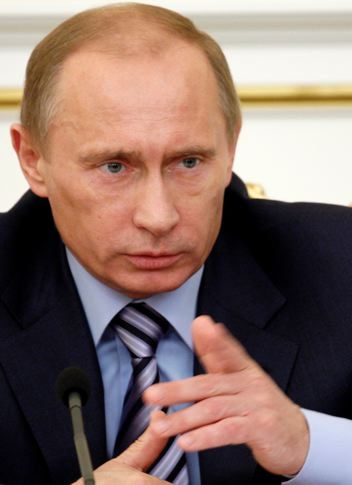
"Usually … when there is a change of power in any country, and even more so in a superpower such as the United States, some changes occur," said Putin, whose comments were reported by Reuters. "We very much hope that these changes will be positive. We are now seeing these positive signals."
"We hear that one should build relations with Russia, taking into account its interests. If these are not just words, if they get transformed into a practical policy, then of course our reaction will be adequate and our American partners will feel this at once," continued Putin. "Already at the expert level, we hear from people close to the President-elect — from his circle, his aides — we hear that there should be no rush [to admit Georgia and the Ukraine to NATO], that one should not spoil relations with Russia."
Several of Putin’s statements indicated he has been receiving feedback from members of the Obama team. He said that the president-elect’s aides had conveyed encouraging signs that they would depart from some Bush administration polices such as an expansion of NATO and the proposed missile defense system. AFP news service cited Putin’s statement that Obama has refused to commit to the present administration’s plan to place missile defense facilities in the Czech Republic and Poland. "We hope very much there will be positive changes. Right now we are seeing some positive signals," said Putin.
Analyst Maria Lipman of the Carnegie Moscow Centre research institute, told AFP that during the broadcast Putin "projected the image of a commander-in-chief in whom everyone’s hopes lie, who almost looks like an all-powerful monarch."
The BBC’s Moscow correspondent, James Rodgers, interpreted the fact that Putin, rather than President Dmitry Medvedev, took the questions from the Russian public as an indication that to many people Putin has retained most of his power and influence since leaving the presidency.
Vladimir Putin joined the Communist Party of the Soviet Union while he was a law student at Lenningrad State University. Upon graduation from the university, he joined the KGB and served the Soviet spy agency until 1991. In 1998 President Boris Yeltsin appointed Vladimir Putin to head the FSB (one of the successor agencies to the KGB). In 1999, Putin was appointed acting prime minister of the Government of the Russian Federation by President Boris Yeltsin. When Yeltsin resigned on the last day of 1991, Putin became acting president. He was elected president in 2000 and was reelected in 2004. Unable to serve for a third term, Putin was replaced by his hand-picked successor, Dmitry Medvedev, who subsequently appointed Putin prime minister.
During the program, Putin also addressed what is in effect the Ukraine’s delinquent gas bill, stating that Russia would be forced to reduce natural-gas supplies to Ukraine if that nation does not pay off the $2.5 billion it has in arrears. Putin observed: "If our partners do not fulfill the agreements or, as in previous year, permit themselves to illegally tap our resources from a transit pipe, we will be forced to cut down the supply. What else can we do?"
Answering questions related to Russia’s economy, Putin promised his nation’s version of an economic bailout: "What can you do in this situation? Can the state help? Yes, it can and it will. We will make sure that state money reaches those it is intended for." Putin singled out Russia’s agricultural, industrial, and small-business sectors as the targets of such aid.
Photo: AP Images



